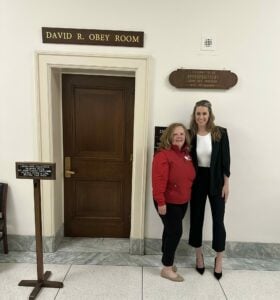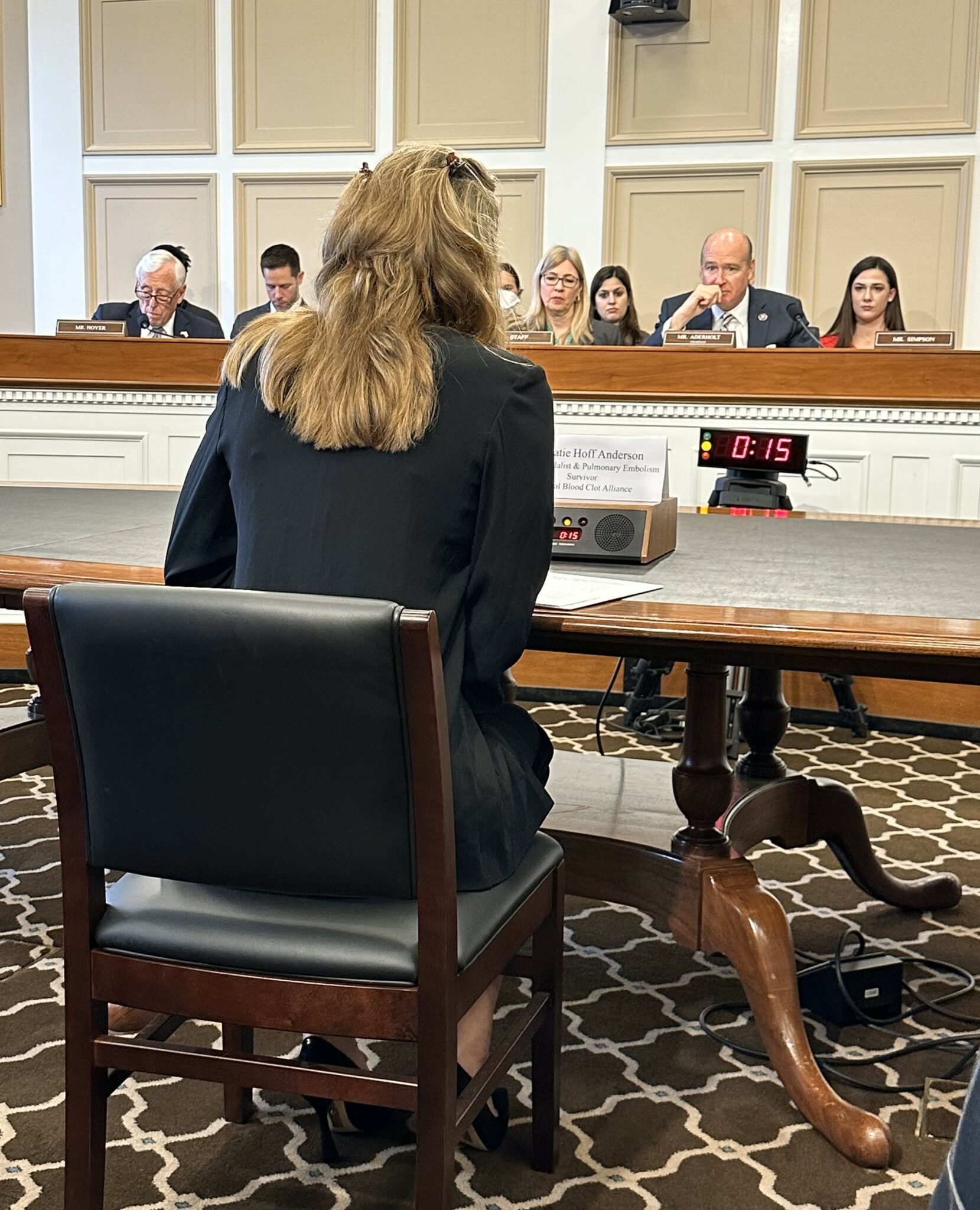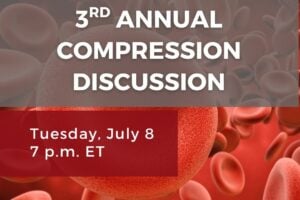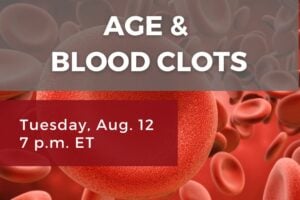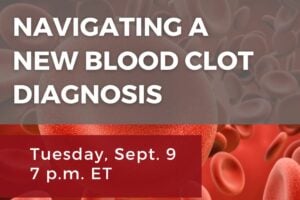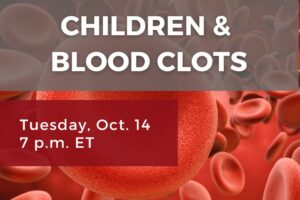WASHINGTON — Katie Hoff, Olympic swimmer and National Blood Clot Alliance Ambassador, spoke Thursday morning before the U.S. House of Representatives Labor-HHS Appropriations Subcommittee about the critical need for blood clot awareness and education funding.
She urged the subcommittee, chaired by Rep. Robert Aderholt (R-AL), to provide $5 million to the Centers for Disease Control and Prevention Division of Blood Disorders to improve awareness and education among the general public and health care workers about life-threatening blood clots.
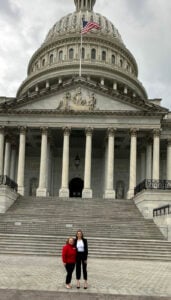
Her testimony was part of Public Witness Day, an opportunity for selected organizations to state their needs for federal funding.
In her five-minute statement, Katie shared her story and experience with a pulmonary embolism (PE), which ultimately ended her successful Olympic swimming career.
“Swimming was my whole life, but I didn’t get to end my career on my own terms,” she said. “While training for my comeback for the 2016 Olympic Games in Rio, I began to feel a tightness in my chest. The tightness progressed to severe pain that felt like someone was stabbing me in the ribs.”
“I continued to push through the pain because my doctors were unable to identify any serious medical condition,” she said.
At the time, Katie wasn’t aware of the signs and symptoms of blood clots and continued her rigorous Olympic training, not realizing that her life was in danger. It took doctors seven weeks to diagnose her with a PE.
With more funding for awareness and education around blood clots, patients and health care providers would have a better understanding of blood clots and lives could be saved.
“Not only will patients be able to advocate for themselves, but so will their loved ones,” Katie said. “Raising awareness is key to prevention, diagnosis, and treatment. I truly believe that my condition would not have been as serious if I and my care providers had the knowledge about blood clots to diagnose me earlier.”
Katie joined NBCA as an ambassador in 2017 in order to raise awareness about the signs, symptoms and treatment options available for blood clots.
View her testimony here.
Katie’s full remarks:
Testimony by Katie Hoff, Former Olympic Swimmer & Ambassador for the Sports & Wellness Institute, National Blood Clot Alliance (NBCA)
U.S. House of Representatives Labor-HHS Appropriations Subcommittee
Public Witness Hearing
March 23, 2023
Chair Aderholt and Ranking Member DeLauro, thank you for holding this hearing, and for the opportunity to ask that Congress provide $5 million in funding to the Centers for Disease Control and Prevention to improve awareness and education among the general public and health care professionals about life-threatening blood clots.
My name is Katie Hoff, and I am a two time Olympian, three-time Olympic medalist, eight-time world champion swimmer, and a pulmonary embolism survivor.
Swimming was my whole life, but I didn’t get to end my career on my own terms. While training for my comeback for the 2016 Olympic Games in Rio, I began to feel a tightness in my chest. The tightness progressed to severe pain that felt like someone was stabbing me in the ribs with a samurai sword. Even laying on my back and sleeping was painful, but I continued to push through the pain because my doctors were unable to identify any serious medical condition.
Like many Americans, I didn’t even know what a pulmonary embolism was. Only 6 percent of Americans know what a blood clot is, and this lack of awareness among patients and health care providers leads to preventable deaths. There are two types of blood clot, Pulmonary Embolism or PE, and Deep Vein Thrombosis known as DVT.
Each year, 1 million Americans will develop blood clots, and more than 100,000 people will die from them. Blood clots can affect anyone, regardless of age, ethnicity, race, or level of physical fitness.
It took seven weeks for doctors to diagnose me with a pulmonary embolism. During that time, I continued to jump in the pool, unaware that I was in a life or death situation. I sought help from a variety of health care professionals, trying out every remedy made available to me. I was desperate for answers because this undiagnosed condition affected my ability to race and to engage in my life’s passion.
Looking back, I can now identify some of the early onset signs; however, most Americans lack the knowledge to recognize these signs and advocate for themselves. In the time that I was seeking a diagnosis, I felt like I was going crazy. Doctors thought that I was fine because I was a young, seemingly healthy, athlete.
The mental toll of suffering from a blood clot is something that has continued to affect my life. To this day, I experience a trigger response when I get out of breath and start crying. My husband also carries the burden of constantly looking out for small signs that might be an indicator of a new blood clot.
Even after my diagnosis, I felt isolated because I barely knew of anyone who had suffered a blood clot, and those who had seemed to have bounced back, something I was unable to do. I felt like a freak. Sharing stories and being able to talk to fellow survivors is so important to helping people move through the experience of having a blood clot.
If patients and health care providers have a better understanding about blood clots, then the next person like me who suffers from one won’t have to suffer alone. Not only will patients be able to advocate for themselves, but so will their loved ones.
Raising awareness is key to prevention, diagnosis, and treatment. I truly believe that my condition would not have been as serious if I and my care providers had the knowledge about blood clots to diagnose me earlier.
In 2017, I joined the National Blood Clot Alliance, a patient-led, health advocacy organization, as an ambassador, hoping that by sharing my story I could raise awareness about the signs, symptoms, and treatment options available for blood clots.
The NBCA works closely with the CDC and receives funding to create programs designed to build awareness and educate both the public and health care providers about the risks of blood clots.
Despite the significant toll of blood clots on patients and the health care system – an estimated $10 billion – the federal government allocates few resources to the issue.
It is for this reason, that I urge Congress to direct CDC to provide $5 million in its Public Health Approach to Blood Disorders budget to develop a comprehensive, nationwide blood clot education and awareness campaign for the public and support education and training on the signs and symptoms of blood clots for health care professionals.
My life changed overnight when I developed a blood clot, and if I had the knowledge that I do now about blood clots, I could have spared myself weeks of agony as I chased a diagnosis. I appreciate your leadership and commitment to prevent deaths due to blood clots by providing dedicated funding.
